The grocery industry in the United States is a vast and dynamic sector, characterized by intense competition and a diverse array of players. With thousands of stores spread across the country, the largest grocery chains dominate the landscape, offering everything from basic food staples to specialized organic products. Here, we will explore some of the largest grocery chains in the USA, examining their scale, market strategies, and impact on the American consumer.
Walmart

- Image Credit: ACHPF, Shutterstock
Walmart stands out as the largest grocery retailer in the United States, commanding a significant share of the market. According to Statista, Walmart’s grocery sales in the U.S. reached approximately $500 billion in 2023, a testament to its dominance. Walmart operates over 5,200 stores nationwide, many of which are Supercenters that combine general merchandise with full grocery departments.
Walmart’s success in the grocery sector can be attributed to its extensive distribution network, competitive pricing, and wide variety of products. The company has invested heavily in technology and logistics, ensuring that stores are well-stocked and prices remain low. Additionally, Walmart has expanded its online grocery offerings, allowing customers to order groceries online for pickup or delivery.
Costco
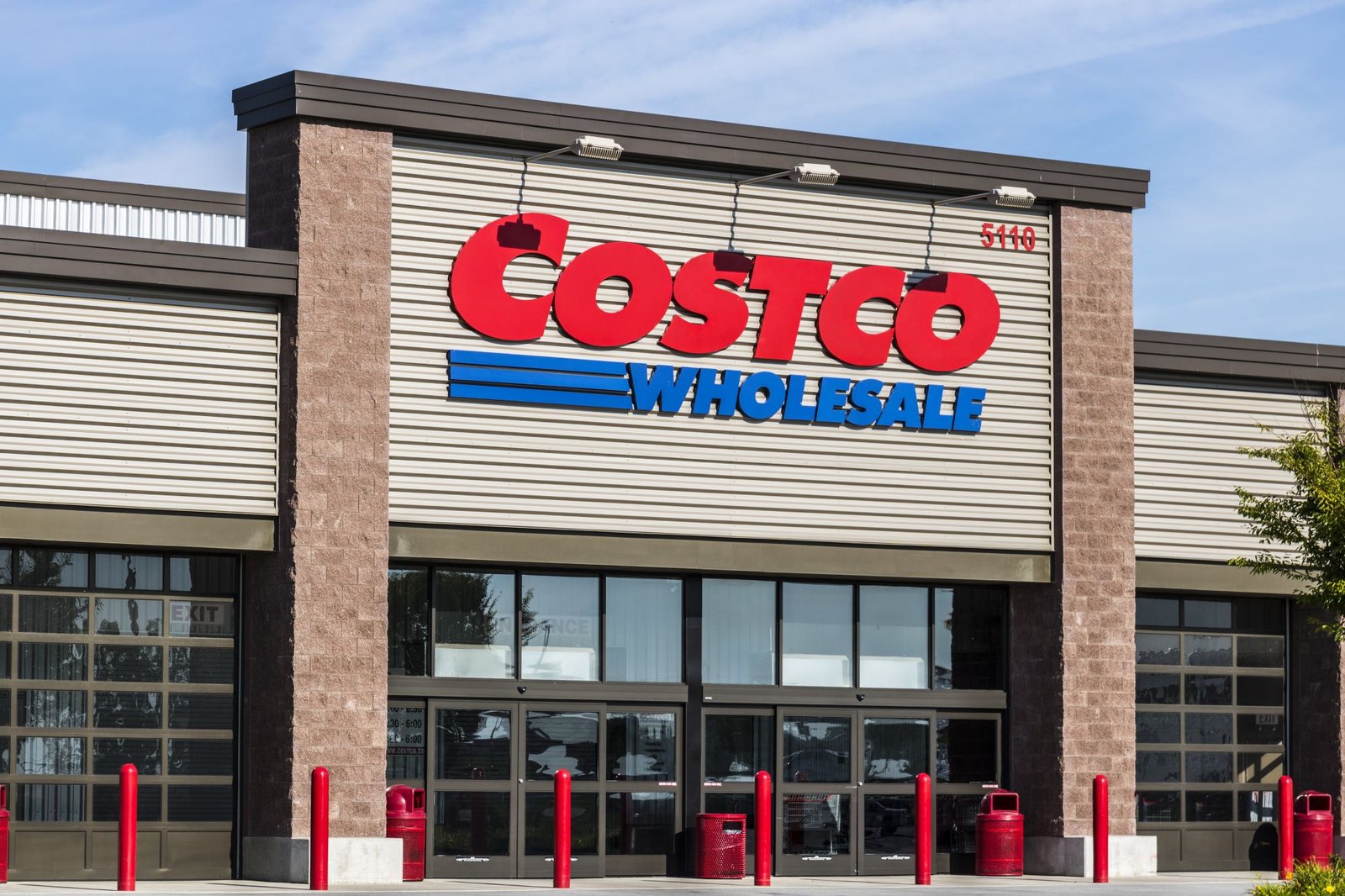
- Image Credit: Jonathan Weiss / Shutterstock.com
Costco is known for its membership-based warehouse clubs, which offer bulk products at discounted prices. With over 584 locations in the United States, Costco generated grocery sales of approximately $176.6 billion in 2023. The company’s unique business model, which relies on membership fees, allows it to offer lower prices compared to traditional grocery stores.
Costco’s product range includes a wide variety of groceries, from fresh produce to packaged goods, often in larger quantities than typical supermarkets. The company also places a strong emphasis on quality, with many products available under the Kirkland Signature brand, which has become synonymous with high quality at a reasonable price. Costco’s focus on customer satisfaction and value for money has helped it build a loyal customer base.
Kroger
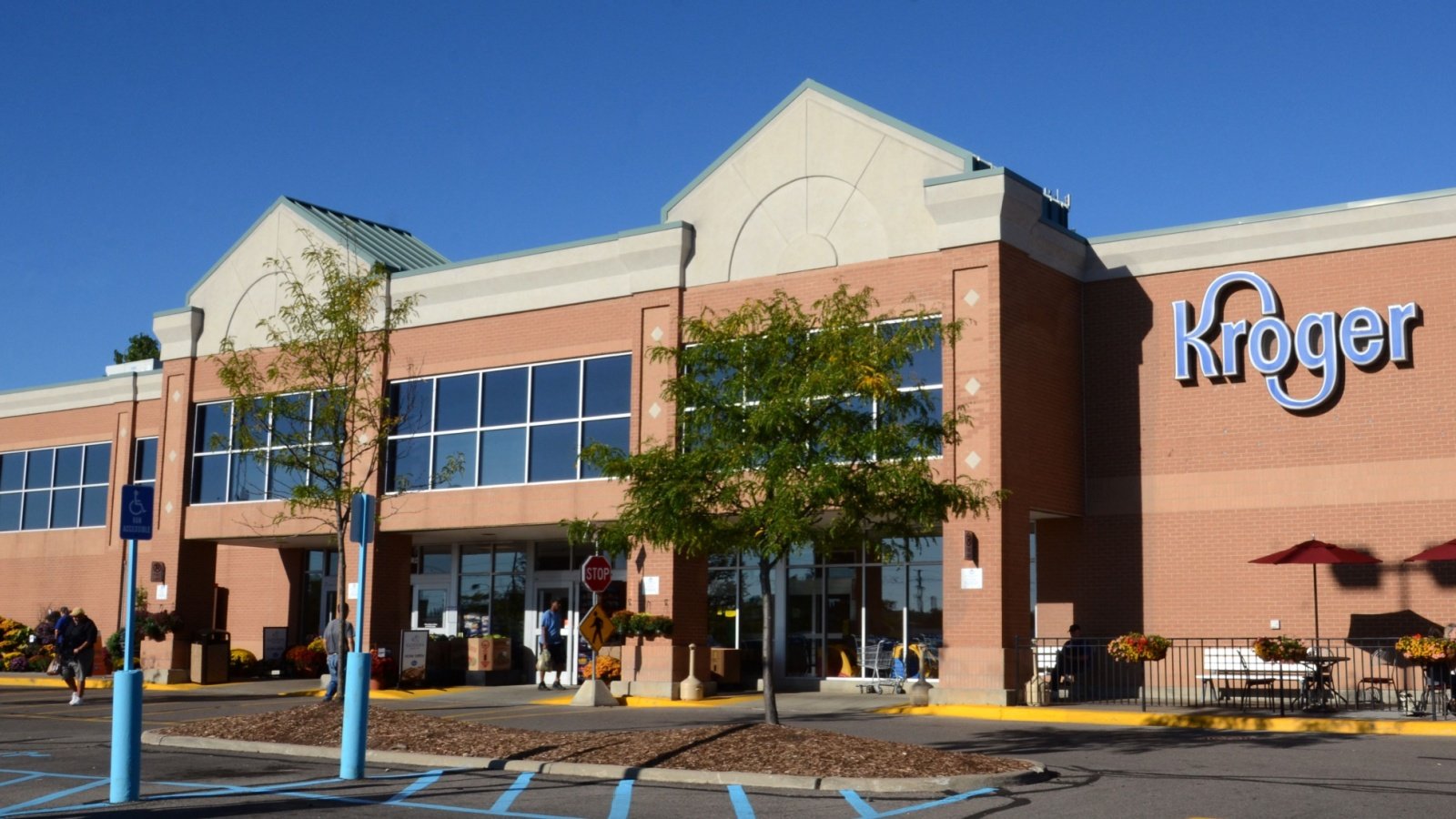
- Susan Montgomery / Shutterstock.com
Kroger is another major player in the U.S. grocery market, with a significant presence across the country. As of 2023, Kroger operates over 2,800 stores under various banners, including Ralphs, Fred Meyer, and Harris Teeter. The company reported annual revenue of approximately $132.5 billion in 2023.
Kroger’s success is driven by its strong focus on customer loyalty and its diverse range of store formats, from supermarkets to smaller neighborhood stores. The company has also invested in technology, with initiatives like the Kroger Precision Marketing program, which uses data analytics to enhance customer experience and drive sales. Additionally, Kroger has been expanding its organic and natural food offerings, catering to the growing demand for healthier options.
Target

- Sundry Photography / Shutterstock.com
While primarily known as a general merchandise retailer, Target has a significant grocery presence. Target ranks as the fourth-largest grocer in the U.S., holding a 5.3% market share in 2022. Target’s grocery sections, known as “Target Grocery,” offer a wide variety of products, from fresh produce to packaged goods. The company has also been focusing on improving the freshness and quality of its grocery offerings, catering to the growing demand for better-for-you options.
Albertsons Companies

- JVHEPhoto / Shutterstock.com
Albertsons Companies, which includes Safeway, Vons, Jewel-Osco, and several other brands, operates over 2,269 stores across the United States. The company reported revenue of approximately $79 billion in 2023. Albertsons is known for its strong regional presence and its ability to cater to local tastes and preferences.
The company has been actively investing in digital transformation, with a focus on enhancing its e-commerce capabilities and improving the customer experience. Albertsons has also been expanding its private label offerings, which provide customers with quality products at lower prices. Additionally, the company has been focusing on sustainability initiatives, such as reducing food waste and improving energy efficiency in its stores.
Ahold Delhaize USA

- Image Credit: Deposit Photos
Ahold Delhaize USA operates several well-known grocery chains, including Food Lion, Giant Food, and Stop & Shop. With over 2,000 stores nationwide, the company generated revenue of approximately $54.5 billion in 2023. Ahold Delhaize USA is known for its focus on convenience and customer service, with many stores offering features like in-store pharmacies and fuel stations.
The company has been investing in its digital and online capabilities, with initiatives like the Peapod Digital Labs division, which focuses on enhancing the online shopping experience. Ahold Delhaize USA has also been expanding its assortment of fresh and healthy products, catering to the increasing demand for better-for-you options.
Publix
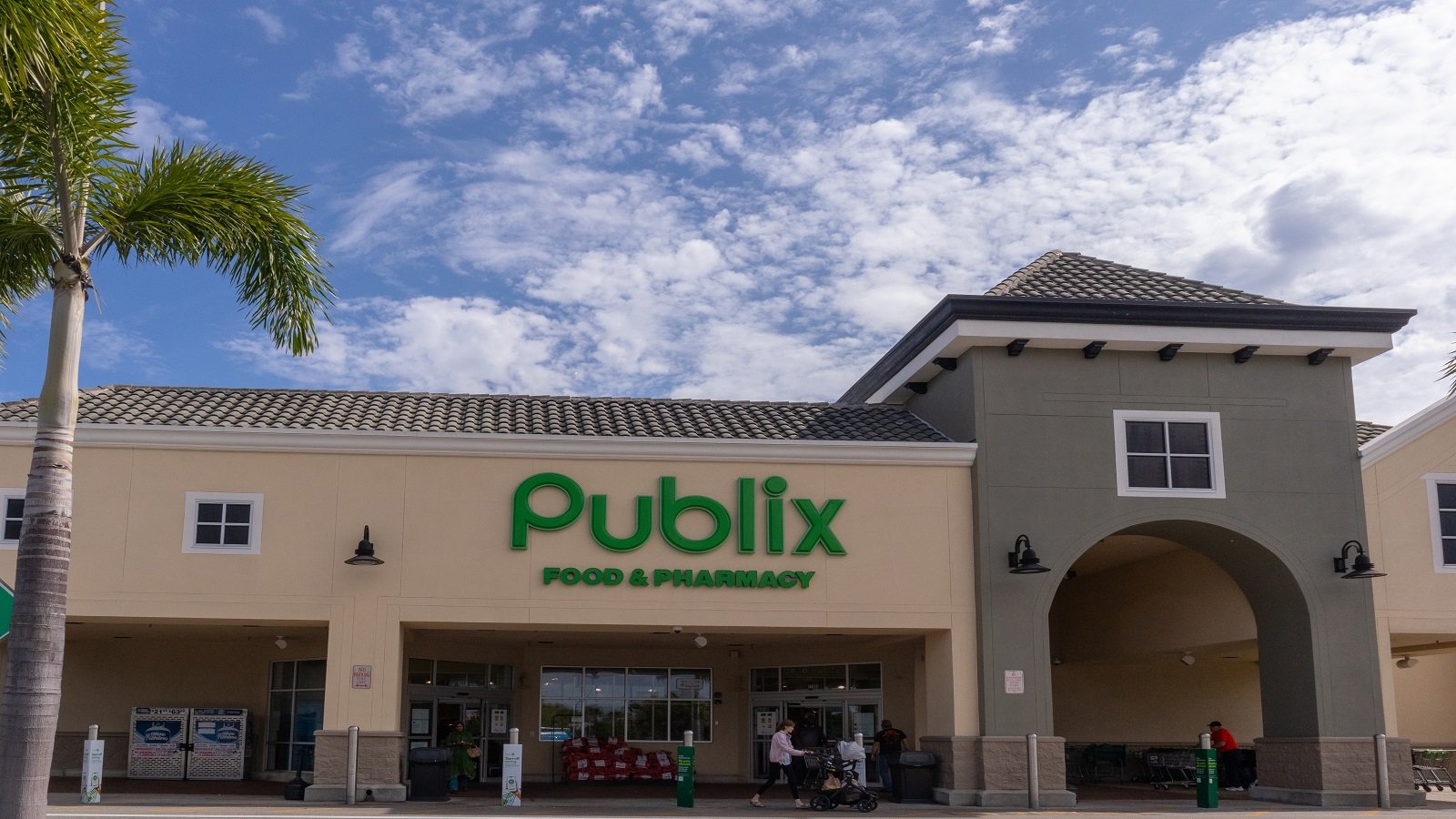
- Carmen Whitehead / Shutterstock.com
Publix, a regional grocery chain based in the Southeastern United States, operates over 1,322 stores and reported revenue of approximately $48 billion in 2023. Known for its exceptional customer service and clean stores, Publix has built a loyal customer base. The company’s focus on employee satisfaction, with initiatives like employee ownership, has also contributed to its success.
The company has been expanding its footprint, with new store openings in states like Virginia and the Carolinas. Publix has also been enhancing its online shopping capabilities, with services like curbside pickup and home delivery.
H-E-B

- JHVEPhoto / Shutterstock.com
H-E-B, a Texas-based grocery chain, operates over 420 stores and generated revenue of approximately $32 billion in 2023. Known for its strong focus on local products and community involvement, H-E-B has built a strong reputation in Texas and Northern Mexico.
H-E-B offers a wide range of products, including a large selection of private-label items. The company has been investing in technology and innovation, with initiatives like the H-E-B Digital team, which focuses on enhancing the online shopping experience. H-E-B has also been expanding its footprint with new store openings and acquisitions.
Aldi
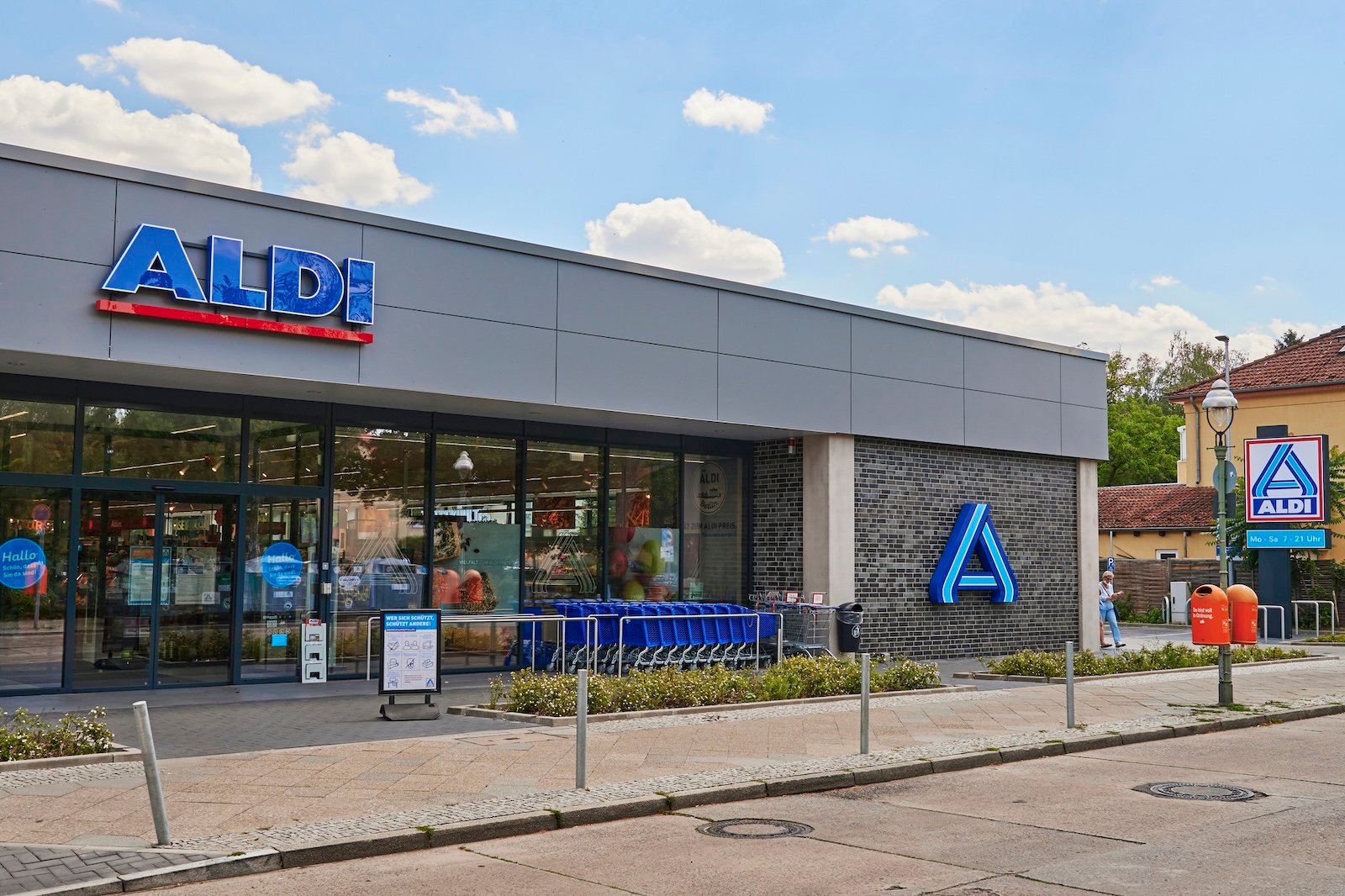
- Image Credits: Deposit Photos
Aldi, a German discount grocery chain, has been rapidly expanding in the United States. With over 2,400 stores, Aldi generated revenue of approximately $37 billion in 2023. Known for its no-frills shopping experience and low prices, Aldi has attracted a growing number of customers seeking value for money.
The company has been investing in store remodels and expansions, as well as enhancing its organic and specialty food offerings. Aldi has also been expanding its e-commerce capabilities, with services like curbside pickup and home delivery.
Whole Foods Market

- Image Credit: QualityHD, Shutterstock
Whole Foods Market, acquired by Amazon for 13.7 billion, operates over 500 stores in North America. Known for its focus on organic and natural foods, Whole Foods Market has built a loyal customer base among health-conscious consumers.
The company’s acquisition by Amazon has led to significant changes, with enhancements to its online shopping capabilities and integration with Amazon Prime. Whole Foods Market continues to focus on sustainability and quality, with initiatives like the Whole Trade Guarantee, which ensures fair trade practices and sustainable sourcing.
Meijer

- Jonathan Weiss / Shutterstock.com
Meijer, a regional supercenter chain based in the Midwest, operates over 240 stores and reported revenue of approximately $20.5 billion in 2023. Known for its one-stop shopping experience, Meijer offers a wide range of products, including groceries, clothing, electronics, and household items.
Meijer’s success can be attributed to its strong emphasis on customer service and community involvement. The company has been expanding its footprint with new store openings and remodels, as well as enhancing its online shopping capabilities. Meijer has also been focusing on sustainability initiatives, such as reducing energy consumption and supporting local farmers.
Trader Joe’s
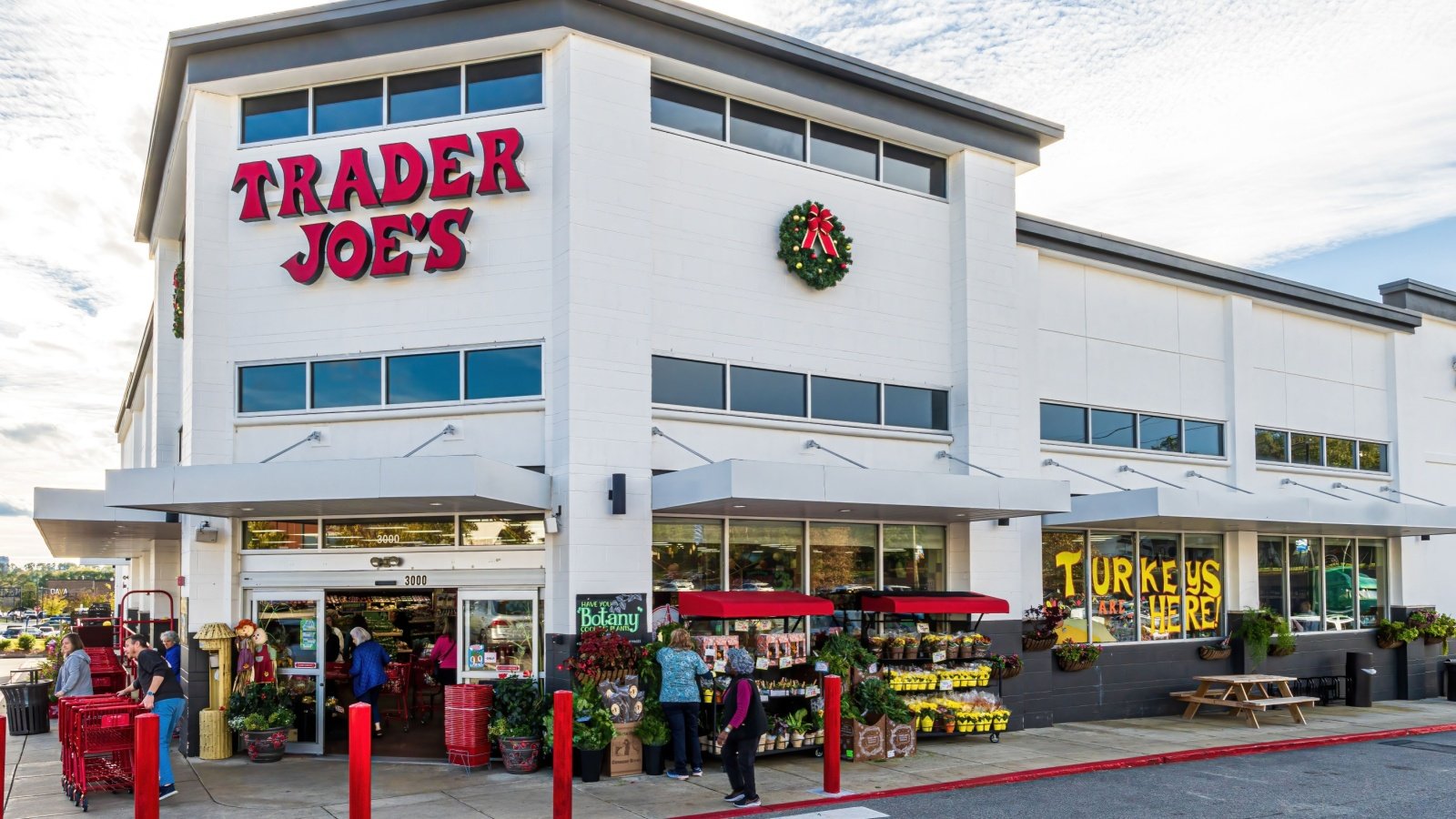
- Wileydoc / Shutterstock.com
Trader Joe’s, a unique grocery chain known for its quirky atmosphere and private label products, operates over 500 stores and reported revenue of approximately $16.5 billion in 2023. The company has built a loyal customer base with its focus on quality, unique products, and competitive pricing.
Trader Joe’s success is driven by its curated selection of products, many of which are sourced directly from suppliers to ensure quality and cost savings. The company has been expanding its footprint with new store openings across the country. Trader Joe’s also places a strong emphasis on customer experience, with friendly staff and a fun shopping environment.


